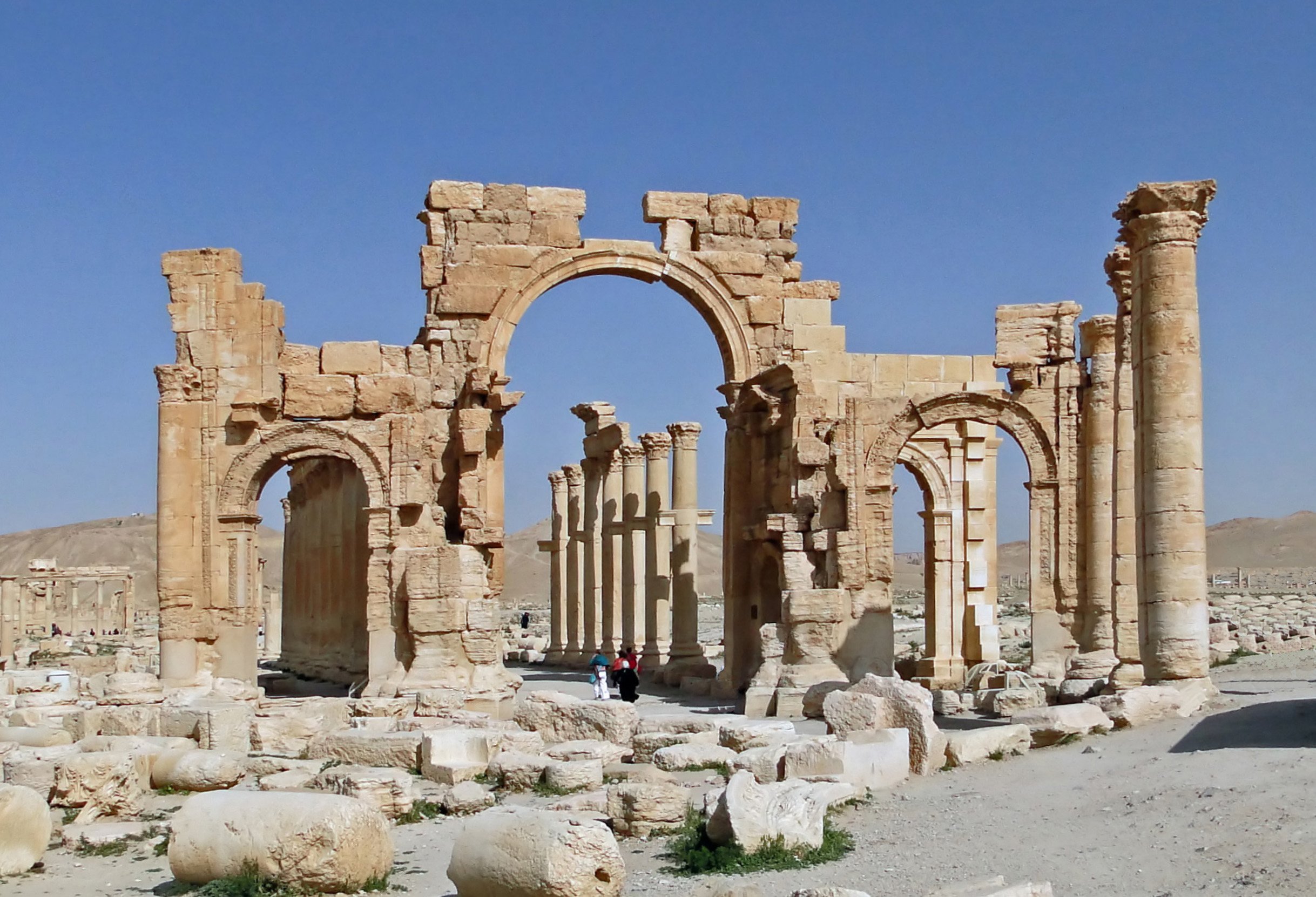Laundering Conflict Artefacts: An Interview with Blood Antiquities Specialist, Sam Hardy
Photo Courtesy: Wikimedia Commons // Monumental Arch of Palmyra Syria, a heavily looted site
Since the British Museum thefts last August, there has been renewed interest in the movement of illicit artefacts. The thefts from the British Museum, dating back to 2016, and the subsequent appearance of these stolen artefacts online, dragged the inner workings of the museum out into the light. As the authorities and press combed the museum's workings for information, many were shocked by how little the Museum recorded of its substantial collection. Globally, a pervasive lack of documentation for historical artefacts has made illicit trafficking of cultural heritage a lucrative global industry.
We had the opportunity to speak with Dr Samuel Hardy about the rising tide of cultural heritage theft and the tell-tale marks of artefact trafficking. Hardy is a specialist in the trafficking of cultural goods from areas of conflict. His work has focused on the history of trafficking from armed groups and oppressive regimes around the world. He works to raise awareness in public lectures and as an active member of watchdog group ACCO, the Alliance to Counter Crime Online.
The Alliance to Counter Crime online has filed a civil complaint against Meta for “hosting illicit content on its platforms. Knowingly misleading lawmakers, regulators and investors about its capacity and intent to remove and report dangerous crime occurring on its platforms.” As an investigator for ACCO and in his work studying the crime Sam Hardy continues to work to spread awareness about this problem.
Sam Hardy: It’s easy for everyone in the chain who handles objects to destroy the evidence of their criminality just by not keeping paperwork. If you don’t record that it was sold to you by a criminal then how are we going to prove that it was sold to you by a criminal?
You just say ‘oh, it came from an old collection, and this old collection didn’t keep paperwork because it’s an old collection.’ There’s something very suspicious in that because they would have got twice the money if they had good paperwork. How many people throw away half of the value of their commodities?
Q. Without paperwork, visually distinctive features and styles have been used to locate trafficked items and identify their place of origin. This requires the involvement of specialists and academics who are able to trace the origin of these pieces. Are there any Artefacts that are easier to trace than others?
Sam Hardy: Shabti are great because they’re often very traceable. Often people aim to have paperwork that this thing comes from decades ago and has been in a family for decades. But, because they can identify the tomb that it was from, we are able to prove that this thing only came out of the ground during looting in 2012.
Q. A lot of your work has been with ACCO, the Alliance to Counter Crime Online. In 2020 Meta, “banned” the sale of artefacts on their platforms. Have you seen any impact since these changes were made?
Sam Hardy: I really don’t think the ban had any practical effect because there was no practical enforcement. It created a situation where it was easier for people to say that there was a problem because it was officially against Facebook policy but it wasn’t like Facebook had people looking for these things. It wasn’t like Facebook even had automatic programs looking for these things.
No one’s monitoring any of these things in a systematic way. So, they’ll carry on using online forums. They’ll use WhatsApp and they’ll use Twitter and they’ll use YouTube. People sell things in comments on YouTube videos. They say that they’re not buying or selling but if someone asks if they can buy something they might say ‘send me a private message’ rather than no.
Even if there’s a system – It’s really common now in Eastern Europe to put this disclaimer: ‘all of this digging has been faked for entertainment. All of the artefacts are fake objects that were buried and then dug up again for the sake of entertainment.” It’s obviously bullshit. Everyone knows it’s bullshit. It’s a joke even among the criminals. But if a moderator sees it they say: ‘look this says it’s only entertainment. They’re not actually looting or trafficking. Therefore they’re not violating our guidelines.’
This is one of the problems with the market. But at the same time, you’re in a difficult legal position because you can’t prove that they’re lying. There’s that whole ‘prove it,’ attitude. Like a really bad cop show.
This interview has been edited for clarity and length.

